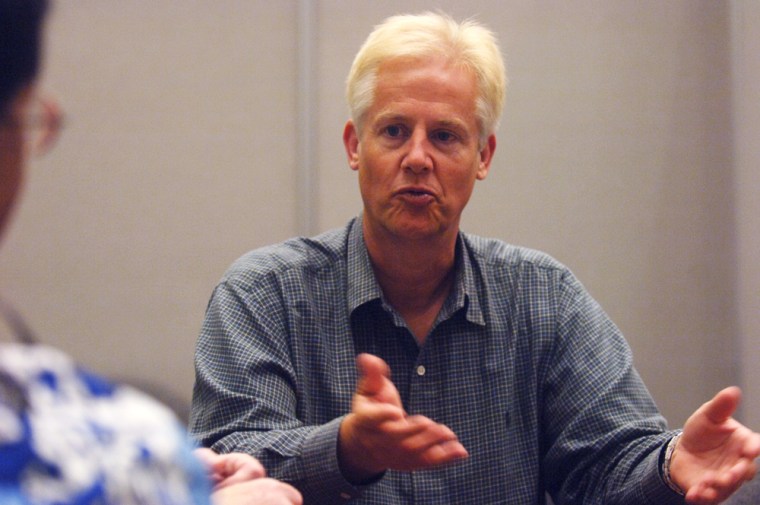Even in a nation where most every school has Internet access and computer use often starts by nursery school, teachers of technology see a warning message flashing.
For students in elementary and secondary schools, states have few developed standards or required courses in computer science — a field that goes beyond basic literacy to encompass hardware and software design, real-world applications and computers' effect on society.
Such lean coursework means that many students don't have the chance to study the science of computers until college, where a declining number are majoring in the subject. Somehow, teachers contend, states must embrace the idea of training sophisticated computer users at a younger age.
The sell isn't easy. Computer science, like other subjects, is fighting for time on student schedules and a place on the political agenda, where reading and math dominate.
"Students don't have to take our classes, it's only an option," said Jim Lindberg, who teaches computer software applications to high school students in Tacoma, Wash. "Some kids, for whatever reason, are missing the opportunity to at least take a bite out of the class, to see what it's all about ... They would use the skills they learn for the rest of their lives."
Technology teachers spoke to The Associated Press during a group interview at the annual meeting of the National Education Association, the country's largest teachers union.
Mike Brown, an instructional supervisor for Robertson County Schools in Springfield, Tenn., said more high school students should be learning programming, Web site management or graphics. Instead, they take basic keyboarding and graduate without much computer savvy, he said.
The same students who can customize their cell phones expertly need to see how computer science benefits them, he said: "If you can show them that, then they're going to jump on it."
Yet computer science teachers say they're facing a perception that careers in the field are harder to come by since the dot.com collapse a few years ago. Federal job forecasts contradict that notion, and careers from criminology to biology often demand advanced computer training.
In the United States, the number of bachelor's degrees in computer and information sciences soared 91 percent from 1997 to 2002, during the tech boom. Recently, however, the popularity of computer science as a major for incoming freshmen has plummeted, falling more than 60 percent between 2000 and 2004, according to the Higher Education Research Institute at UCLA.
Meanwhile, technology executives have told Congress they are increasingly relying on employees from overseas and clamoring for more U.S. graduates with stronger science skills.
The fastest growing jobs through 2012 include data communications analysts, health information technicians and computer software engineers, according to the Labor Department.
Other developments show why advocates are worried.
The number of computer science teachers dropped slightly in 2005 for the first time in years, according to Market Data Retrieval, which annually surveys schools districts.
Even the Advanced Placement Program has seen a declining number of students take its yearly tests in computer science, bucking a trend in which most every AP subject is booming.
Lindberg, the Washington teacher, has integrated reading and math into his class and helped teachers in other departments see how to better use technology. "It's almost a survival mechanism, but we're showing the 'academic' teachers that what we teach is valuable," he said.
Glenn Fernandez, an elementary school technology coordinator in Honolulu, Hawaii, helps students learn desktop publishing, spreadsheets and other tasks by sixth grade. But some schools can't afford such programs, or they lose funding for subjects required for graduation, he said. If the teachers only know word processing, he said, "that's all their class is going to get."
And that's not enough, said Chris Stephenson, executive director of the Computer Science Teachers Association, a newly formed advocacy group. The nation needs students who are prepared to develop software, design hardware, program languages and manage databases, she said. The association is promoting a model curriculum that integrates computer science through every grade.
"We need to get (students) to the level of creating original works with their skills," Stephenson said. "We want to see a generation of tool builders, not just tool users, because tool builders have the economic power in the world."
